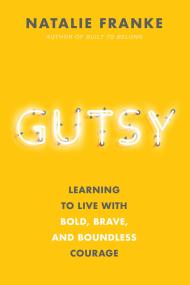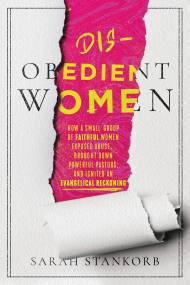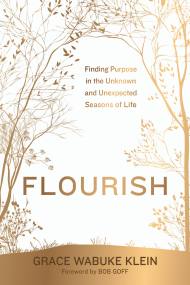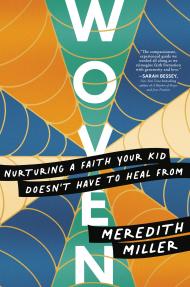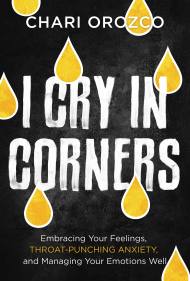5 Books by GUTSY Women

Throughout history, women have had the guts to forge paths and fight battles most of us don’t even know about. They’ve shown up, spoken up, and accomplished the impossible and were brave enough to share their ideas and shine their light to inspire the rest of us to do the same.
Here we’ve featured highlights from our incredible authors who just happen to be some of these trailblazing, gutsy women.
Allow the words from these powerful women to inspire some movement in your life. Go forth and conquer!
1. Gutsy by Natalie Franke
So often we let the whispers around us drown out the confidence within us. This is the moment that we unpack why that happens and become the heroes of our own story. This is the moment that we become the boss of our own lives and remember who we truly are. This book is for the achievers who are tired of chasing after approval, the go-getters who are no longer hustling for validation, the dreamers who are done waiting for their moment to arrive, and the discouraged hearts who need a reminder that they are worthy and have always been capable of greatness. We can stop the fear of what other people think from keeping us stuck, silent, and struggling to feel worthy. We can work toward self-acceptance, crank up the volume of our inner voice, and allow our core values to lead us forward.
Natalie Franke, Gutsy
2. Disobedient Women by Sarah Stankorb
When faith is inherited, it’s often mothers who ingrain affiliation in their kids. They organize the baptisms, funerals, and pancake breakfasts. They drag their kids to church, much as my own mother did each Sunday. Traditionally, throughout the world, and in almost every religion, women were more religious than men. While more men were still nonbelievers than women in the U.S. in the 2010s, women were catching up, with millennials like me representing an even greater turn away from religion. A few sociologists of religion (and in turn, I) found female rejection of faith to be a sort of canary in the coal mine for the future of religion and the church in America.
Sarah Stankorb, Disobedient Women
3. Flourish by Grace Wabuke Klein
Just as nature graciously transitions from one season to the next, I want you to live and find purpose in the fall, winter, spring, and summer seasons of life. Some seasons are more enjoyable than others. Some make you wish you had a remote control that could fast-forward a few months to the next season. Unfortunately, unlike nature, in which there is a specific time frame for each season, life does not have such parameters. Life’s seasons can last several months, years, or even decades. But I believe you can flourish in whatever season you’re currently in. You can live your life and walk in your purpose.
Grace Wabuke Klein, Flourish
4. Woven by Meredith Miller
A web anchors itself at many points, with strong strands that provide its basic structure. Each anchor thread is upheld by tension and expects to be stretched. Meanwhile, the internal strands make up the body of the web so that it has its own unique shape, texture, complexity, beauty. Anchor threads and internal threads combine to create something incredibly resilient. You may not have known, but spiders’ webs are considered incredibly strong, not because they rigidly withstand the elements, but because they can bend without breaking in the face of them. Perhaps our faith works in a similar fashion. Anchor threads affix to who God is, including the attributes that live in mysterious, dynamic tension with one another. Internal threads—habits; less essential, but still important beliefs; faith practices; life rhythms—give our faith its unique shape.
Meredith Miller, Woven
5. I Cry in Corners by Chari Orozco
The world has tons of remedies for wholeness, but I needed wholeness from the one who created me. I needed to experience wholeness, not as a destination I would arrive at one day but a road Jesus would walk me through daily. So I changed how I chased wholeness and healthy emotions. Not because the therapy was bad or because I stopped looking to professionals to give me guidance but because I was tired of allowing other people to tell me what they thought would make me better or more palatable to a broken world. I was tired of trying to fix my brokenness; I wanted to live in Christ’s wholeness.
Chari Orozco, I Cry in Corners
